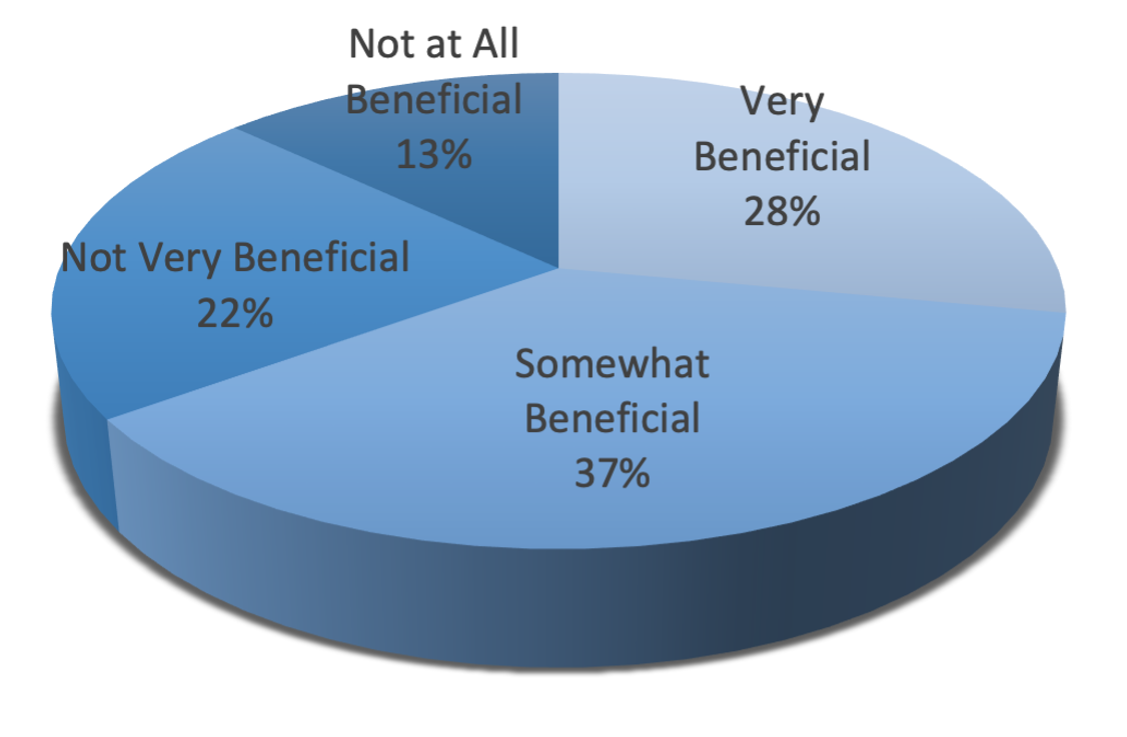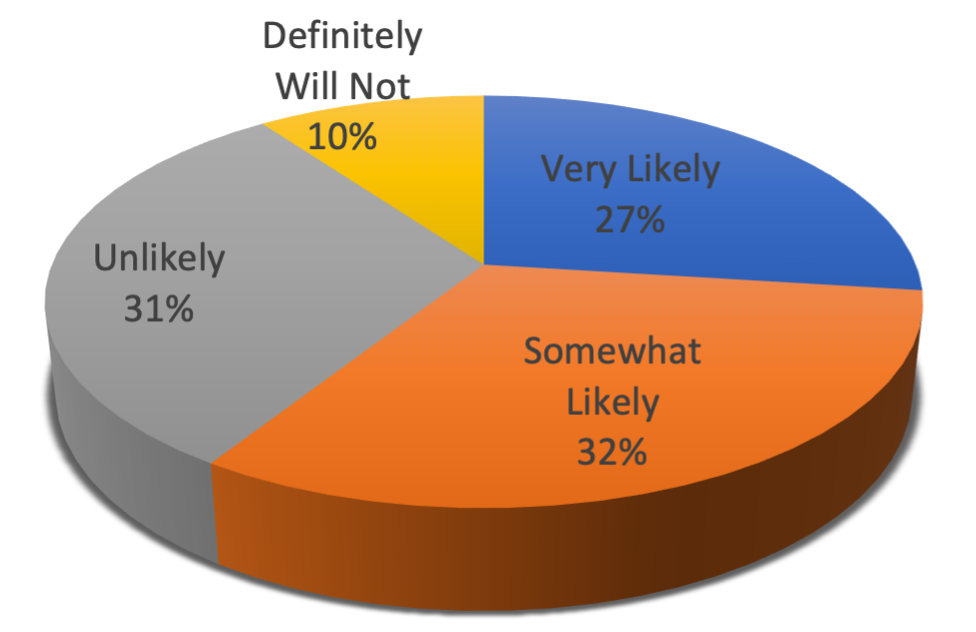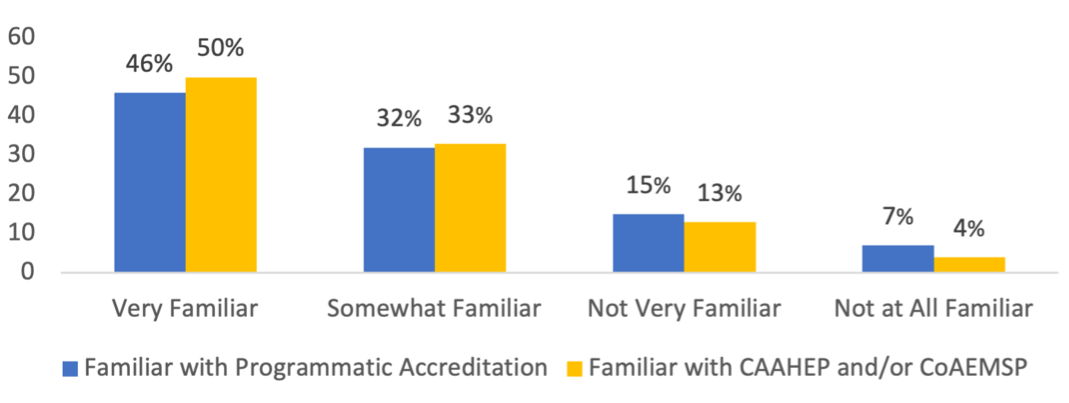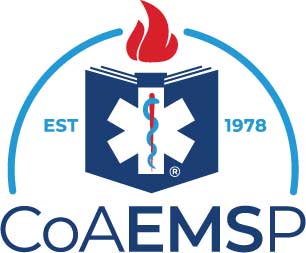
CoAEMSP is accepting applications for Advanced Emergency Medical Technician (AEMT) voluntary programmatic accreditation. CoAEMSP provides accrediting services on behalf of the Commission on Accreditation of Allied Health Education Programs (CAAHEP), the only nationally recognized accreditation organization for AEMT and paramedic education.
Interested AEMT Program Directors Can Start Learning About the Accreditation Process Now
- Seeking Accreditation: What You Need To Know
- CAAHEP Standards & Guidelines include the detailed AEMT curriculum competencies that begin on page 18
- CoAEMSP Interpretations of the CAAHEP Standards and Guidelines
- CoAEMSP Policies & Procedures
- CAAHEP Policies & Procedures
- LoR Application and LoR Application Invoice Request Form to initiate the accreditation process
- Fees
Resources
| Document Link | Date | Type |
|---|---|---|
| Abridged AEMT LoR Application-LSSR for Existing Paramedic Programs | Feb 2025 | xlsx |
| AEMT Student Minimum Competency (SMC) | Aug 2023 | |
| AEMT Survey Data (slide deck) (November 2023) | Nov 2023 | |
| AEMT Survey Factsheet (November 2023) | Nov 2023 | |
| AEMT Survey Press Release (November 8 2023) | Nov 2023 | |
| AEMT Voluntary Accreditation Press Release (May 2023) | Nov 2023 | |
| EMS Education Standards | Apr 2024 | |
| National EMS Scope of Practice Model | Apr 2024 | |
| Self-Study Report – Letter of Review (LSSR) | Feb 2025 | xlsx |
| Slides: Voluntary AEMT Accreditation: Process & Pathway | Jun 2024 | |
| Step By Step Instructions for Abridged AEMT LoR Application-LSSR | Jan 2025 | docx |
| Student Minimum Competency (SMC) Recommendations AEMT | Sep 2025 | xlsx |
WEB7 Things EMS AEMT Accreditation with Dr. George Hatch of CoAEMSP (Nov. 8, 2023)
WEBThe JEMS Report: Dr. George Hatch on the Future of the AEMT (Feb. 19, 2024)
Recorded on June 13, 2024
Resources
| Document Link | Date | Type |
|---|---|---|
| Slides: Voluntary AEMT Accreditation: Process & Pathway | Jun 2024 |
CoAEMSP Survey of AEMT Program Directors Shows Enthusiasm for AEMT Voluntary Accreditation
CoAEMSP surveyed AEMT Program Directors between September 19 and October 6, 2023, regarding their potential interest in voluntary accreditation and received 293 completed surveys.
AEMT Program Directors are Enthusiastic Regarding Voluntary AEMT Accreditation
- Two-thirds of respondents (65%) believe voluntary accreditation for AEMT programs would potentially benefit their program, and 59% of respondents are likely to seek voluntary accreditation.
- Half of the respondents (50%) are from CAAHEP accredited Paramedic programs, and 65% of them are very or somewhat likely to pursue voluntary AEMT accreditation.
Will Voluntary Accreditation for AEMT Benefit Your Program?

Likeliness to Seek Voluntary Accreditation for AEMT

AEMT Program Directors are Familiar with Programmatic Accreditation and its Benefits
- More than three-quarters of respondents (78%) are familiar with accreditation, and 4 out of 5 respondents (83%) are familiar with CAAHEP or CoAEMSP.
Familiarity with Accreditation

Program Directors Identify Top Three Potential Benefits of Accreditation
- Establishes standards that ensure high-quality education (74%)
- Fosters continuous quality improvement of education programs (51%)
- Provides students confidence their program meets essential national standards (50%)
Goals for National Registry Pass Rates, Education Standards May Inform Interest in Voluntary Accreditation
- Among survey respondents with an established goal for annual pass rates of the National Registry certification exam, 93% have a goal that 70% or more of exam takers pass the test. However, according to data from the National Registry:
Only 56% of AEMTs who voluntarily took the NREMT certification exam in 2022 passed the test the first time, and 69% passed within a cumulative three attempts.
In contrast, among Paramedics, all of whom attended an accredited Paramedic education program in 2022, 71% passed the first test, and 85% passed within three cumulative attempts.
- Nearly all AEMT programs (90%) adhere to the National EMS Education Standards and Guidelines for AEMT, and 58% also follow a state mandated curriculum.
Barriers to Accreditation are Largely Process, not Program
When asked to identify multiple potential barriers that would prevent an AEMT Program Director from pursuing voluntary accreditation, the reasons cited were more likely to be administrative rather than programmatic, including cost (69%), time commitment (52%), and administrative requirements (51%). A minority of respondents cited a perceived lack of return on investment (42%) and an inability to meet accreditation standards (10%).

